Packaging industry leaders spoke in-depth about the plastic pollution problem at the annual FPA environment conference in London. Thomas Parker was in attendance
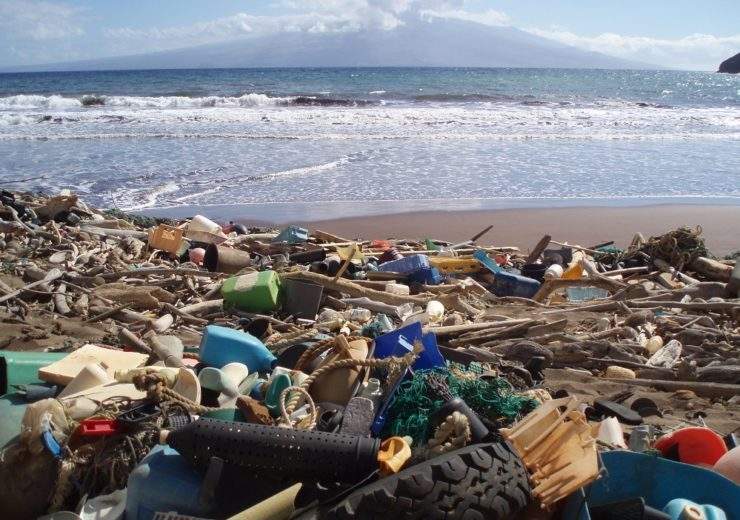
The issue of plastics was discussed in depth at the FPA environment conference in London (Flickr/NOAA Marine Debris Program)
Plastic isn’t being unfairly “picked on”, it can still serve a purpose in society and the “Blue Planet effect” – these were some of the hot topics at the Foodservice Packaging Association’s (FPA) environment conference.
As industry leaders, academics and politicians gathered for the annual event in London last week, the prominence of one issue proves it’s not going away.
And for good reason – 99% of people surveyed by Earth Watch Europe last year said they were either very concerned or concerned about plastic pollution.
Why is plastic bad for the environment?
According to Greenpeace, only 9% of plastic waste has ever been recycled.
It means 12 million tonnes of plastic ends up in the sea each year – nearly the same weight as a million London buses.
By 2050, the Earth Day campaign predicts there will be more plastic by weight than fish in our oceans.
But why is it so bad? According to a study published by the University of Hawaii last year, when plastics are exposed to sunlight, methane and ethylene – both greenhouse gases – are produced.
The World Wildlife Fund for Nature (WWF) charity’s executive director for advocacy Tony Juniper says : “We are approaching a mass extinction event and we know that to prevent that, we have to be active in avoiding the worst of climate change and we have to be intervening to align our economic system with our ecological system.”
Here, we round-up the main arguments, concerns and suggestions put forward at the FPA environment conference.
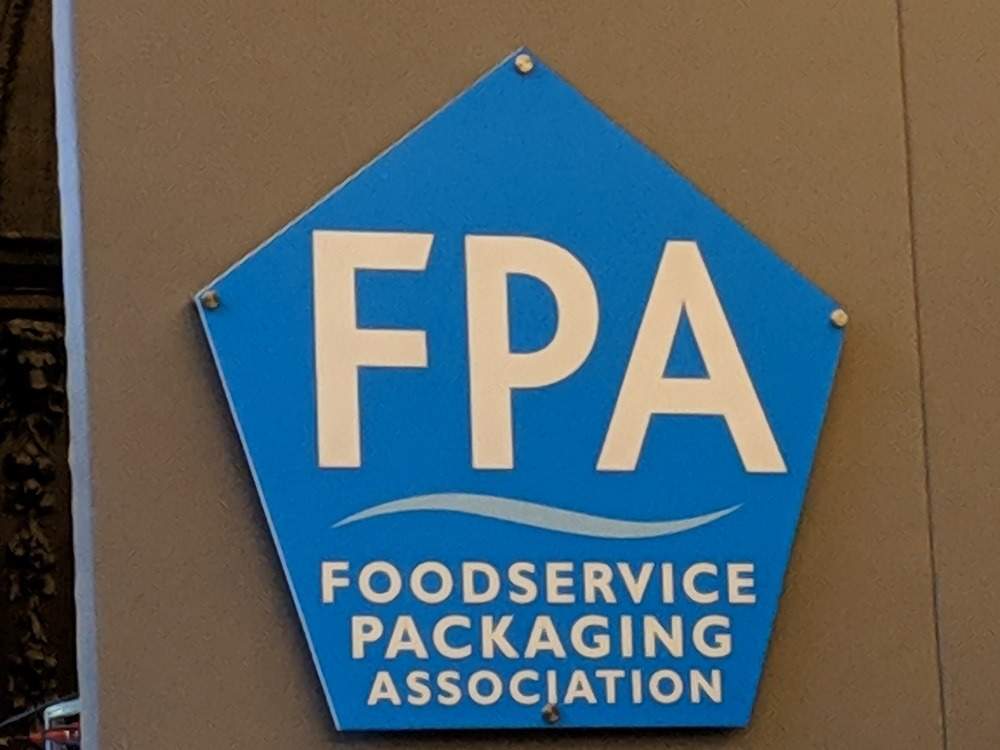
Cost of beach litter and plastics
Richard Thompson, professor of marine biology at Plymouth University, believes there are some people who think plastic “is being picked on”, even though he says most marine litter is plastic.
“And, though I am not saying that any other materials are better, I don’t think that the heat on plastics as a contaminator is entirely unjustified,” he adds.
Beach litter is said to be on the rise in the UK, with the Marine Conservation Society reporting a 10% increase on rubbish it cleared in 2017 compared to the previous year.
According to Prof Thompson, the UK spends £20m on removing waste from its shores – but only targets areas that attracts visitors.
In the US, California spends an average of $428m a year to clear plastic and other litter from streets, beaches and waterways, according to a Natural Resources Defense Council report in 2013.

Prof Thompson says: “Relatively small quantities of litter now affect our interaction with the natural environment in a way which is measurable.
“We go to nature because it makes us feel good, but a relatively small amount of litter depresses that feel-good factor.”
He also believes that the effects on our environment is in parallel to what humans want.
“We all want to take fish out of the sea but we have to remember that in a place where there is fishing, there is proportionately less fish in the sea,” he adds.
“Similarly, we all want to take a holiday by the coastline but that directly or proportionally takes away the natural habitat that was there.”
The ‘Blue Planet effect’ discussed at FPA environment conference
The issue of plastic pollution has, however, began to enter into public consciousness.
Some coin this shift in opinion the “Blue Planet effect”.
Sir David Attenborough’s BBC documentary Blue Planet 2, which highlighted some of the effects that plastics waste is having on marine life, was the most watched TV show of 2017 in the UK – with 14 million people watching the opening episode of the series.
Five out of the top 10 programmes watched that year were episodes of the show -despite being only eight episodes long.
Some believe this has woken the general public up to think about what happens to plastic after they have used it.
The WWF’s Mr Juniper certainly believes in this shift in perception.
He says: “Quite a lot of people, having gained a new understanding coming from Blue Planet and elsewhere, have tried to go plastic-free.”
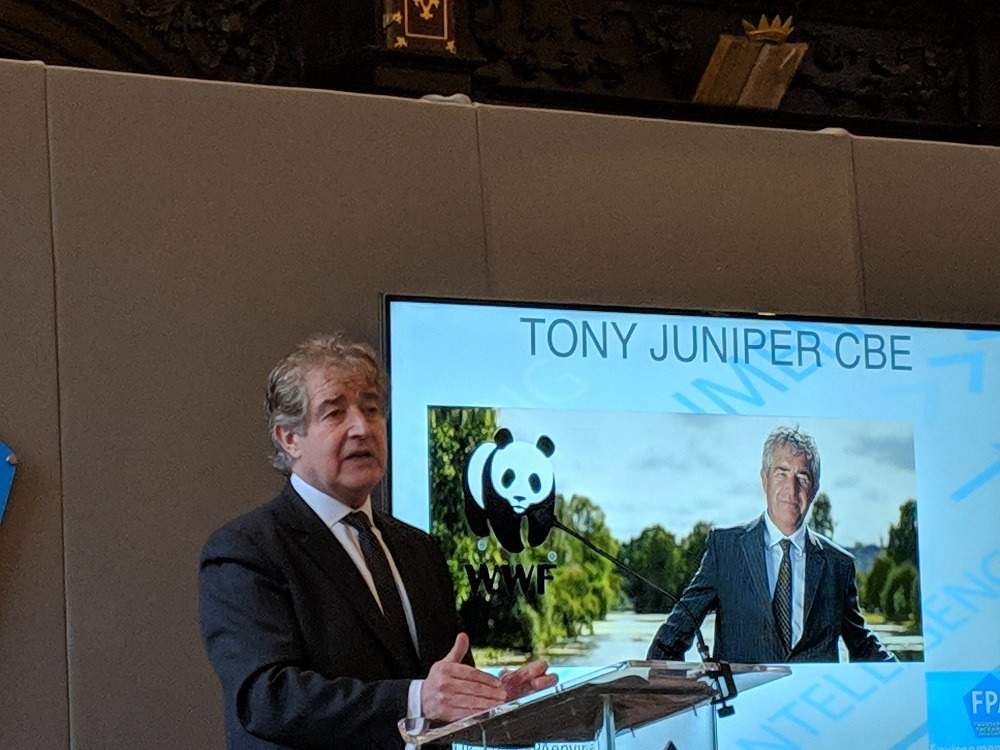
Prof Thompson adds: “It may be the heat of the Blue Planet episodes on the television that has raised the profile on this issue, but I would argue that the plastic that has accumulated in the sea is the just the tip of the iceberg.
“Especially when you compare it to the unnecessary amount beneath the surface on our planet or burnt in incineration.”
The issue of plastic packaging is even coming to the attention of young people.
Mark Pawsey, MP and current chairman of the all-party parliamentary group for the packaging manufacturing industry, tells a story of when he was doing a talk at a primary school in his Rugby constituency.
He recalls: “The very first question, from a seven-year-old was ‘what are you going to do about the amount of plastic packaging in our oceans?’
“So it is high on the agenda for our younger generation.”
Why plastics are important despite environmental concerns
Plastics, however, do have significant benefits, most notably in the preservation of food as it can help prevent waste.
According to a United Nations Food and Agriculture Organization report in 2013, if food waste was a country, it would be the third largest carbon producer in the world, behind only the United States and China.
Referencing this statistic, Mr Juniper says: “Packaging is quite crucial for getting the food from the producers to the consumers without going into a landfill or the incinerator.”
Prof Thompson shares this view, adding: “Packaging helps to reduce food wastage, which is as serious an environmental challenge like the one caused by plastics in packaging.
“What we need to do is have these benefits without causing the harm.”
Heriot-Watt University’s chairman of materials chemistry Professor David Bucknall believes there is a place for plastics in the world if used responsibly.
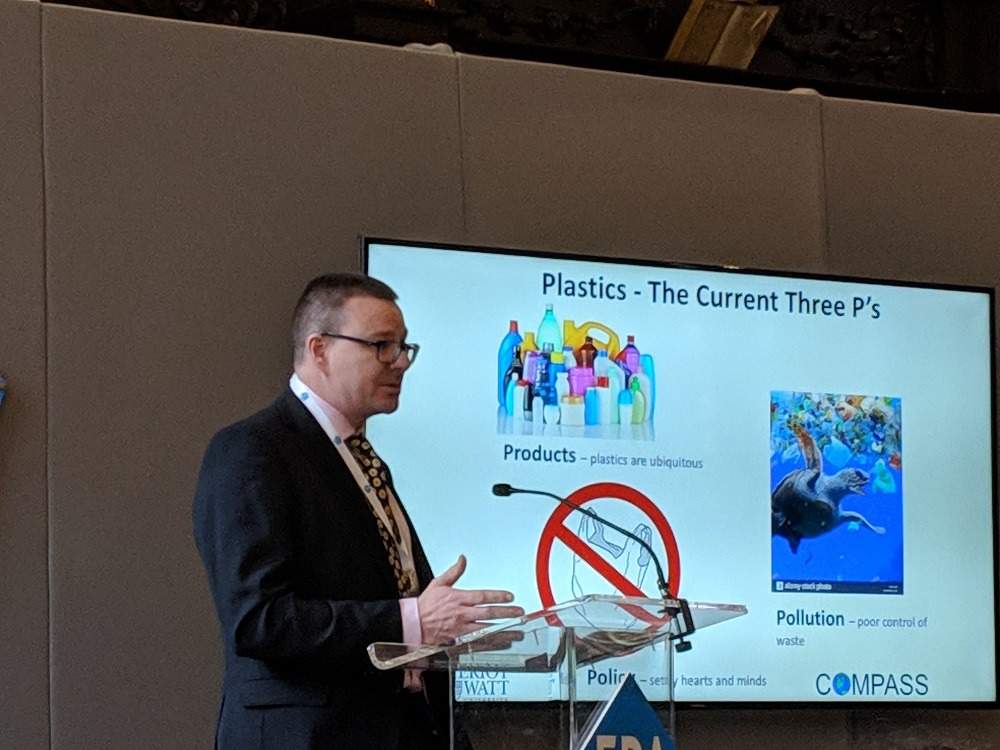
“It’s not that plastic itself is the problem, it is the fact that plastics are misused,” he adds.
“The appropriate use of plastics can save a bigger wastage of food.”
Solutions to the plastic problem
Prof Bucknall highlights how each European country seemingly has a different policy on what to do about plastics, thereby producing varying results.
According to the EU’s official statistic agency Eurostat, Cyprus and Lithuania had the two highest recycling rates in the EU in 2016, with 74.4% and 63.7% recycled plastics rate respectively.
France, Finland and Estonia were among the lowest, all having a rate below 30%, demonstrating the sparse difference between nations.
David Bucknall says: “The approach that we talk about has to be much more than just for the UK, it has to be for every country in the world.”
Mr Juniper believes the best solution is the circular economy – the idea that we always reuse the same materials over and over again.
But the lack of communication has held back this concept until now.
He says: “From what I have seen over the years, half the trouble that we have got is that we are only talking among one or two bits of that circular economy.
“It needs a whole system approach.”
Andy Rees, head of waste strategy at the Welsh government’s Department for Natural Resources and Food, gives an example.
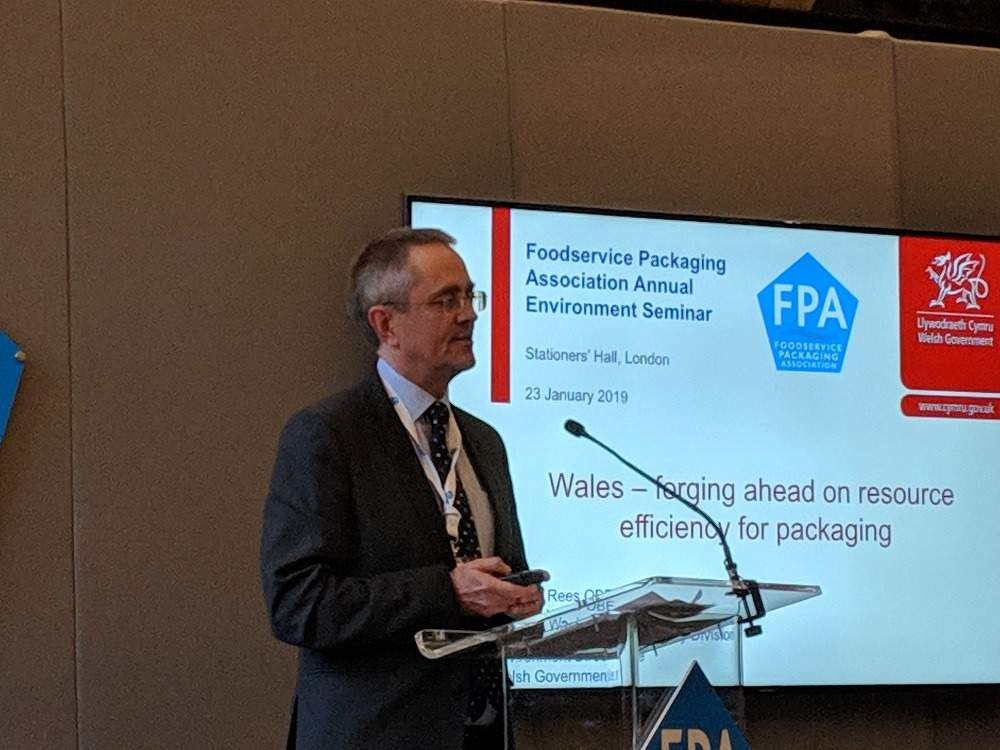
“When designing a sweet wrapper, why don’t the manufacturers think about where that sweet wrapper might end up and create it appropriately?”
